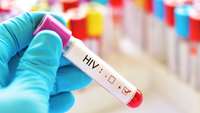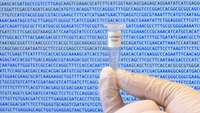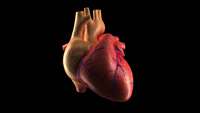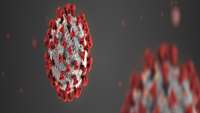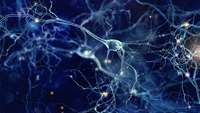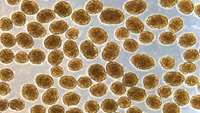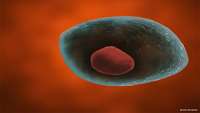In A 1st, Scientists Use Revolutionary Gene-Editing Tool To Edit Inside A Patient
For the first time, scientists have used the gene-editing technique CRISPR to try to edit a gene while the DNA is still inside a persons body.
Second patient free of HIV after stem-cell therapy
A person with HIV seems to be free of the virus after receiving a stem-cell transplant that replaced their white blood cells with HIV-resistant versions.
Allergan and Editas Begin Recruiting for CRISPR/Cas9 Clinical Trial for LCA10
Allergan, a global pharmaceutical company, and Editas Medicine, a developer of gene-editing therapies, have begun patient recruitment for a Phase 1/2 clinical trial for a CRISPR/Cas9 treatment for people with Leber congenital amaurosis 10 (LCA10).
First bacterial genome created entirely with a computer
Scientists at ETH Zurich have developed a new method that greatly simplifies the production of large DNA molecules containing many hundreds of genes. With this method, they have built the first genome of a bacterium entirely designed by a computer algorithm. The method has the potential to revolutionise biotechnology.
Changing what heart cells eat could help them regenerate
Current pharmaceutical treatments for heart failure including ACE inhibitors and beta blockers center on trying to stop a vicious cycle of heart muscle loss as strain further damages remaining heart muscle, causing more cells to die, explains UT Southwestern physician-researcher Hesham A.
China uses stem cell therapy to treat severe COVID-19 cases
Chinese researchers are studying the use of stem cell technology in the treatment of people critically ill with the novel coronavirus disease (COVID-19), according to the Science and Technology Daily.
Brain cells protect muscles from wasting away
scientists have now found brain cells that help clean up these tangles and prolong life at least in worms (Caenorhabditis elegans) and possibly mice. This could lead to drugs that improve muscle health or extend a healthy human lifespan.
Diabetes in mice cured rapidly using human stem cell strategy
Researchers have converted human stem cells into insulin-producing cells and demonstrated in mice infused with such cells that blood sugar levels can be controlled and diabetes functionally cured for nine months.
Expanding the limits of the second genetic code with ribozymes
The site-specific incorporation of noncanonical monomers into polypeptides through genetic code reprogramming permits synthesis of bio-based products that extend beyond natural limits.
Researchers identify a key regulatory mechanism in the development of normal pluripotent embryonic cells
The early development of embryos is not well understood. One necessary stage is the formation of the blastocyst, a collection of cells present by about 4 days after fertilization of the egg, before implantation in the uterus. From that tiny collection of cells, all the different cells in the body must be created.



